The Toronto Comic Arts Festival is one of the most influential and important comic book event in North America. It’s mission is to “promote the creators of comic books in their broad and diverse voices, for the betterment of the medium of comics”. In the spirit of this mission, the Comics Beat has conducted a series of interview with some of the phenomenal cartoonists in attendance at this year’s festival. The Comics Beat will be releasing a series of interview with cartoonist in attendance. We hope that these interviews will improve our understanding of these creators voices, techniques, interests and influences.
Shee Phon is a cartoonist from Toronto. She’s an incredibly friendly and humble person and I was incredibly happy to have a chance to catch her before TCAF. I became aware of her comics through the Comics Workbook Composition Competition last year and I’ve been following her art and comics since. Her stories often revolve around her personal life, or some aspect of her life, each beautifully illustrated. I’ve spoken with her about her autobio comics, her use of watercolour and the Composition Competion.
—
Philippe Leblanc: For those readers who may not be familiar with you and your work, can you tell us a little bit about yourself?
Shee Phon: Hi Philippe! Hi Reader! I’m currently working part-time and making stories whenever I have the time. The work I have online are mostly autobiographical comics, and many are inspired by friends and family. For the future, I want to make fictional, longer, funnier stories about animals and kids that hopefully people of all ages would enjoy!
PL: You are doing a lot of autobiographical comics? I’m often struck by how personal your work is. I’m thinking in particular about Why do you Share with Strangers Online, Brother and Dogs. How do you determine the degree of details you include about your particular life in your comics? Is there a limit to what you reveal about yourself?
SP: I make a lot of autobiographical comics because they’re therapeutic. Actually I don’t enjoy making them, it’s like writing in a journal; it’s a release and teaches me about me. Some comics are fictional, but the three you listed are basically ripped from life. Whenever I make those comics, I try to show as much of the truth as possible, just a little past my comfort zone. I feel like I’m putting trust into the reader. If I don’t hide anything, will the reader will be able to relate, put their trust into the story, open up emotionally? I want to be able to make something like that.
I really tried that with “Brother.” The brother character is a mixture of my sister and my mom. I remember one day I threw the telephone and my mom called me a slut, and then another day she called me a bitch (which I was), and in those moments we probably hurt each other a lot. We’re much better now, and I think the reason I coddle my sister is because of that relationship with my mom. Brother was made after I fought with my sister. I was so anxious over our future relationship. I wasn’t setting a good example and I wasn’t doing anything to change. I felt like she had no one to look up to or be there for her.
So I put it in a comic, I think that’s a bad habit. Sorry if I’m oversharing, I guess the answer to your question is I don’t have limits to what I reveal about me. I think I have a terrible desire to reveal everything I think is horrible, but I don’t know how to do that in a straightforward, meaningful way. So I want to be better at making them! (And to not depend on them so much!)
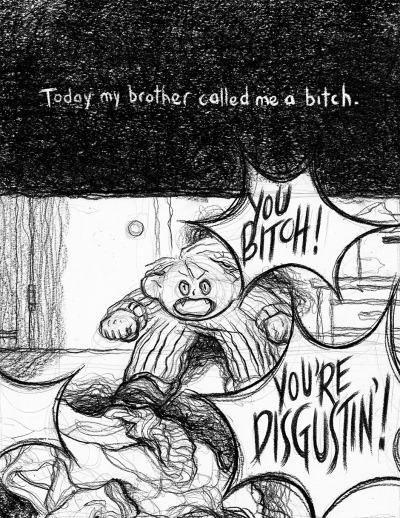
PL: You came in second at the Comics Workbook Composition Competition with your comic I know it’s not about me, but I don’t want to die. How did this affect your work? Has there been lessons you learned from this competition you were able to bring back and integrate in your work?
SP: Looking back on the story, I was really embarrassed. That story was very fictional, since I didn’t have a friend who died. I heard news of someone who died and somehow made it a personal matter. The news made me sad, but only in a selfish way. I think after the competition, I decided if I was going to work with themes of suicide and depression, I would make it completely based on true events. “I know it’s not about me, but I don’t want to die” — first of all that took way too long to type — to me, is just trying to be pretty and poetic. It’s too vague. I had feelings I wanted to express — something about feeling alone and helpless and yadayadayada — but they fell flat.
Still, I’m so glad I made it for the competition because I wouldn’t have realized if I didn’t. I’m happy to be placed with the other two creators, and have Frank Santoro describe the comics as a “reflection” and “a portrait.” That made me look at the story in a new light, just how much it wasn’t being true to what I wanted to communicate, and how differently it’d be interpreted depending on the reader. It wasn’t just a personal story anymore. I need to find a way to effectively communicate to the reader.
PL: I’m fascinated by the way you use colours. You seem adept at using watercolours and I’m eager to hear more about your approach to colour.
SP: Thanks so much. I make most of my comics with traditional media like graphite and watercolour, and then edit them digitally on photoshop. I think I’m average at using watercolours, I just use really vibrant colours and have too many layers so it looks better than it is hahaha… My colour theory is nonexistent… I love using the pure colours straight from the pan. I don’t mix often. Maybe that’s what makes them fascinating? HA.
I’m trying to use more realistic colours, do studies, improve my sense of colour. I hope eventually I’ll be able to use colours tastefully. I’d be able to make a scene as muted or as vibrant as I want, and not just BAM COLOURS all the time. (I’m still not able to paint tasteful muted scenes by the way.)
PL: What do you want readers to take with them once they’ve finished reading your comics?
SP: READER, I WANT YOU TO FEEL GOOD! Or if you’re feeling horrible and you just can’t feel good, I want you to feel like you’re not alone! I want the reader to feel comforted and not alone, and understood.
—
You can find Shee’s comics on Tapastic or on her Tumblr Page. You can read I know it’s not about me, but I don’t want to die here. You can also find Brother and Dogs right here as well.
Come meet Shee during TCAF, she’s looking forward to meeting everyone!
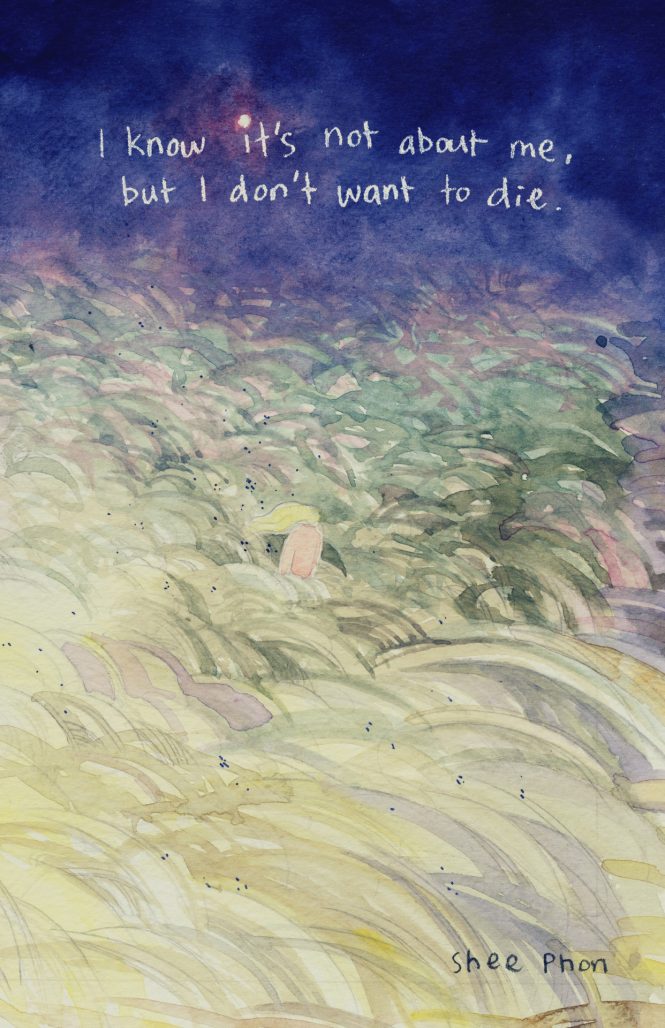
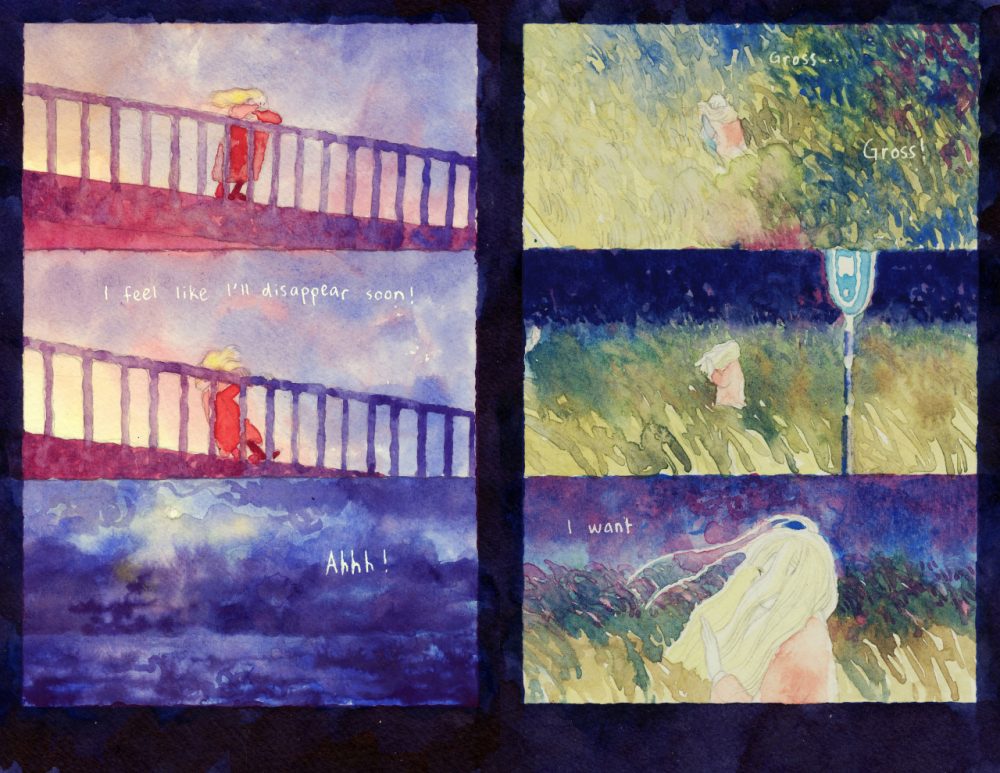


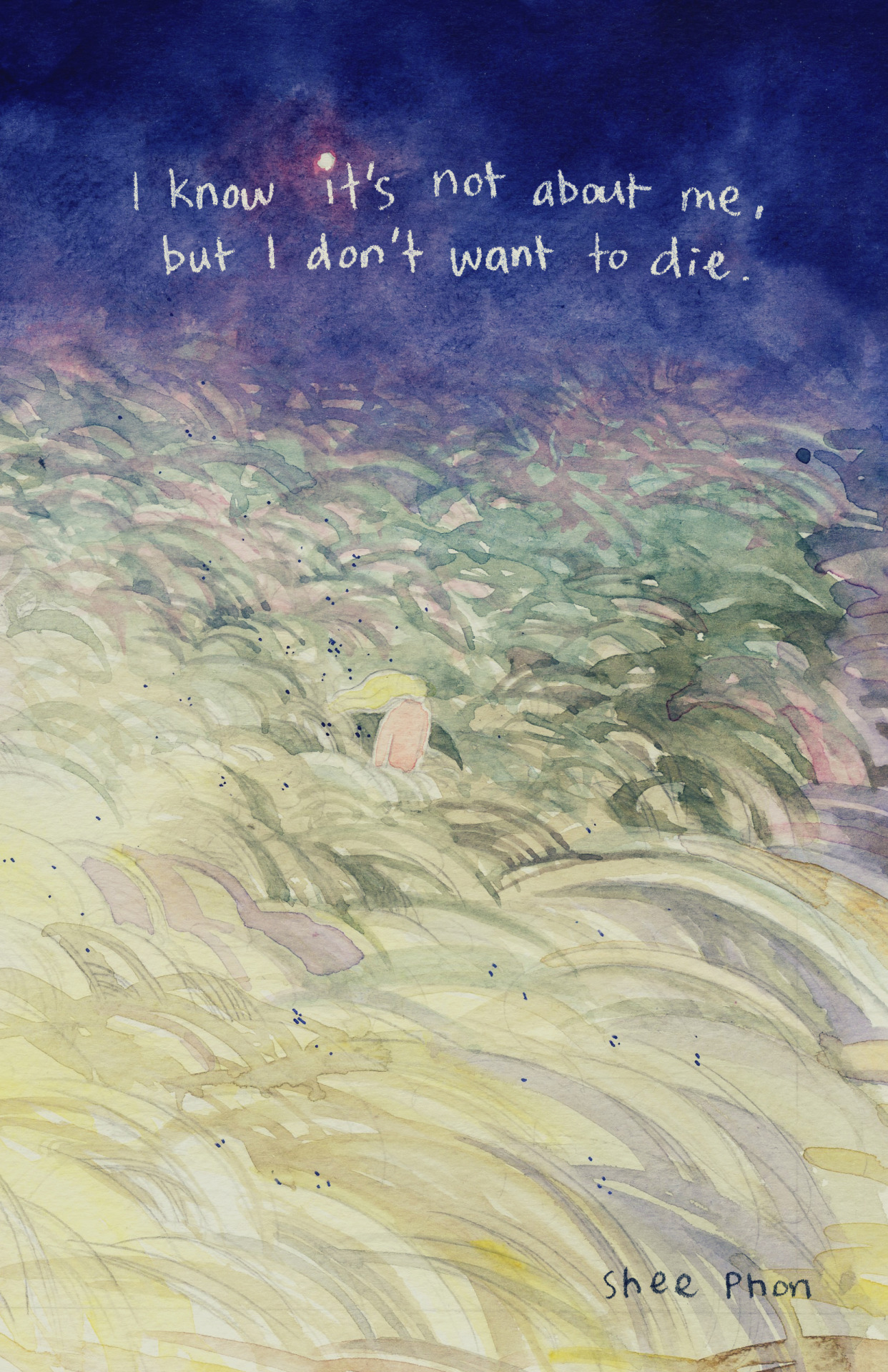
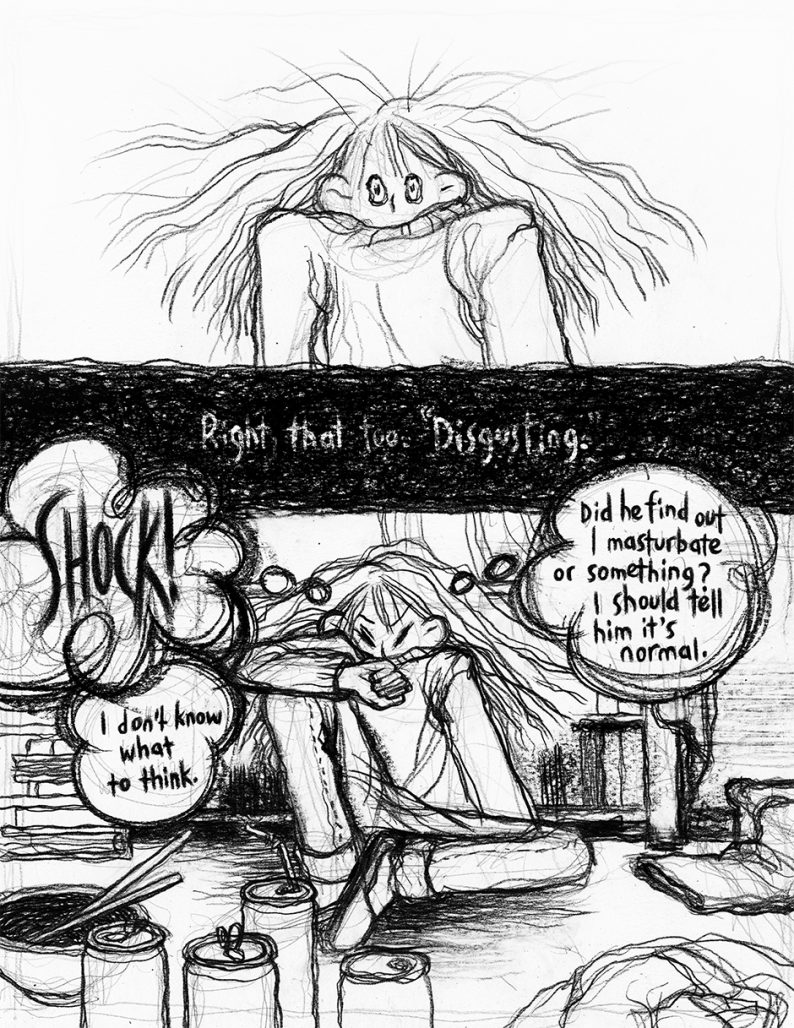
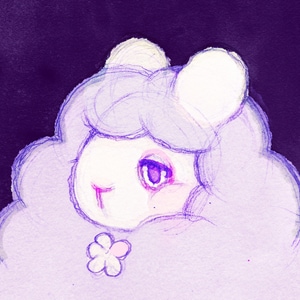
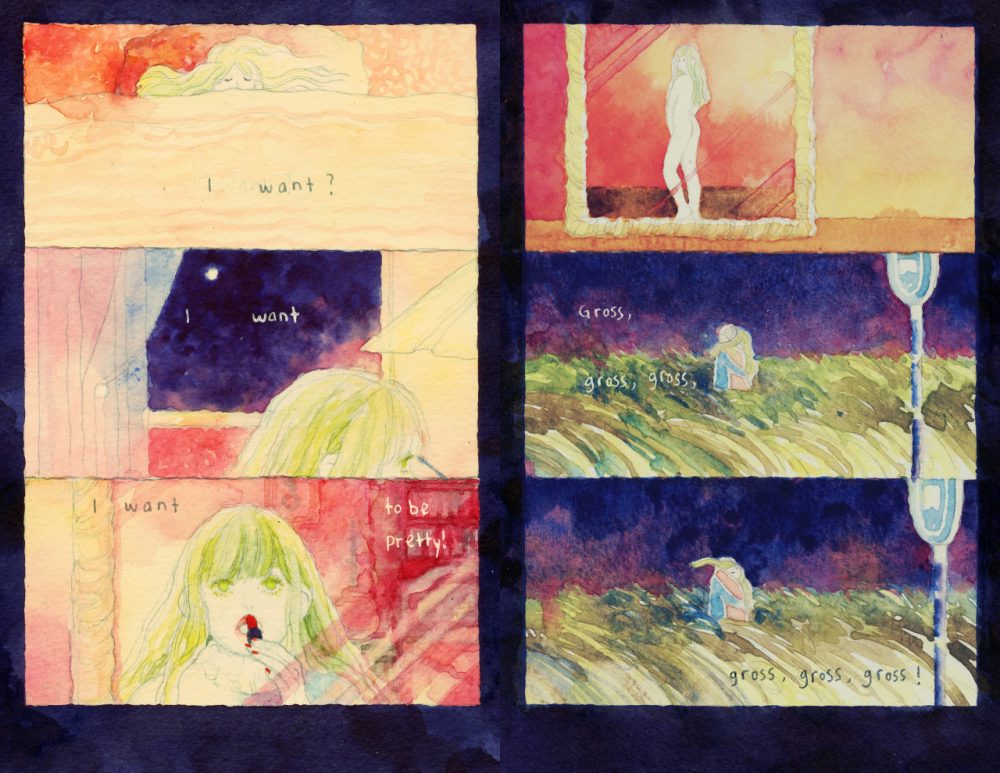
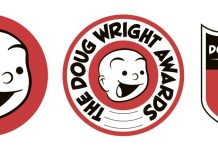


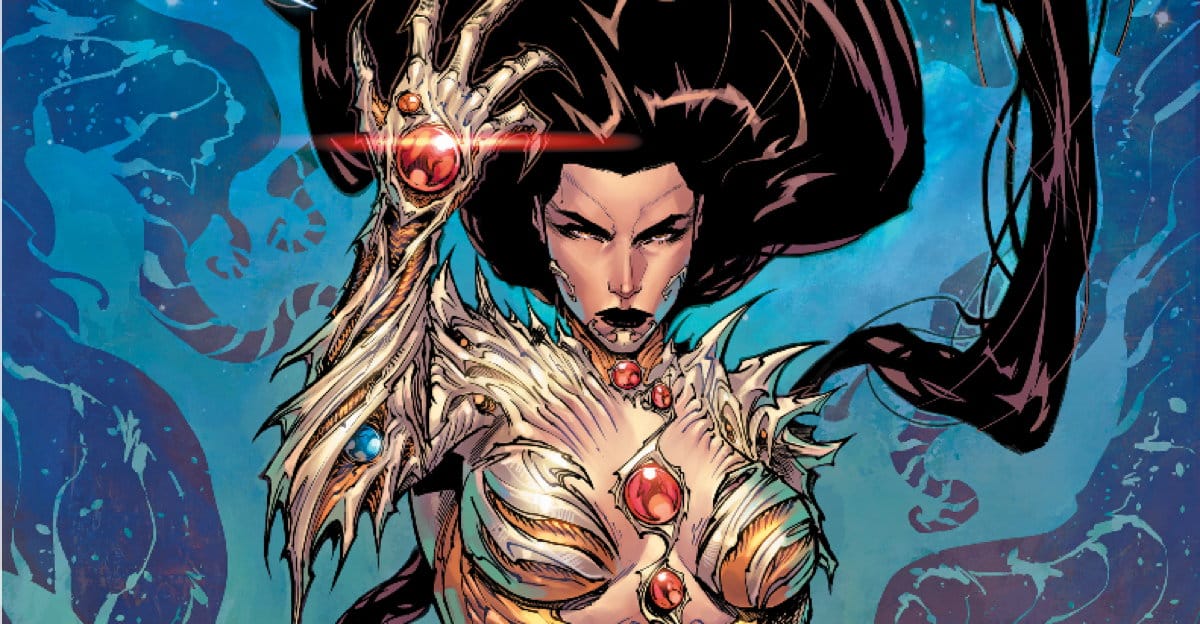


Comments are closed.